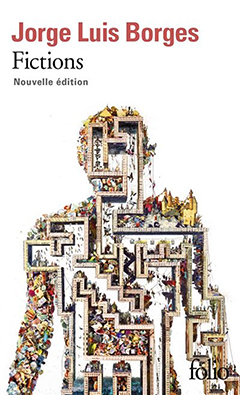
Since his book Petite Poucette published in 2012, the recently deceased philosopher Michel Serres has never ceased to retrace the movement which, from the appearance of the book until today, would offer the possibility of outsourcing one of our essential faculties: memory. We would thus have, he said, the possibility of thinking, learning, transmitting, by holding our head (alias our external memories) in our hands, like Bishop Saint-Denis beheaded by the first Romans.
The faculties of knowledge would be based on machinery similar to that of a computer, and it is a “computational” view of cognition from which we have distinguished ourselves . Device which physically separates the memory of a microprocessor clocked by a replaceable program at will, while memory and sensorimotor activities are biologically interwoven and the internalization of knowledge emerges from this activity.
The computational point of view forgets that social interactions are part of the constitution of our lived world and therefore of our knowledge. As Paul Ricoeur very rightly replied to the neurobiologist Jean ‑ Pierre Changeux, “the brain does not think, I think”.
Learn to learn
 A well-filled head is therefore not inevitably a well-made head. Head then endowed with disproportionate accumulation faculties which ends up resembling that of Iréno Funès, the desperate character of Borges, the one who can not forget anything. Funès’ world is so overloaded with details that he ends up confessing to the narrator after a night’s sleep: “my memory, Monsieur looks like a heap of garbage”.
A well-filled head is therefore not inevitably a well-made head. Head then endowed with disproportionate accumulation faculties which ends up resembling that of Iréno Funès, the desperate character of Borges, the one who can not forget anything. Funès’ world is so overloaded with details that he ends up confessing to the narrator after a night’s sleep: “my memory, Monsieur looks like a heap of garbage”.
However, knowledge is precisely the opposite of a stack of knowledge, since it is not learning things, but learning to connect things . Learning is an essential act of our socialization . The transmission from master to student (based on an education of gift and counter-gift, in line with the work of Marcel Mauss) is not reduced to a simple copy.
In the course of their exchanges, in fact, the subjects recontextualize, transform, re-elaborate, connect, to make sense. This program establishes the culturally situated character in space and time of any knowledge activity, at the same time as it invites a return on oneself.
But what happens when skills, with their sets of certifications, replace knowledge in distance education programs? What place do digital tools leave for humans, over the course of their learning?
A computer platform provides access to a memory, a database designed within an institution or a company by programmers who fix its organization and thus define the keys necessary to reach its content via words.
The implicit assumption of this conception is that the semantic value of a datum, of a passage of document, would be the fact only of its author, whereas it is just as much that of its reader interpreting in context. Since operational capacities for a professional purpose are worth knowledge, what role remains for the interpreter?
This is the question that current distance education platforms are confronted with: MOOCs (for example on the Fun platform , which are booming. If the content of the courses put online, on this site all at least, do not lend itself to caution, the themes represented sometimes testify more to a concern for employability , adaptability to immediate economic needs than education.
Distance education is essentially based on modules of virtual interactions punctuated by immediacy, such as quizzes that do not support any contradiction or nuance, or forums that will never completely replace eye-to-eye dialogue within a community of learners. Because teaching is not just imparting knowledge, but learning to learn.
It is this posture that keeps prejudices and errors at bay. Critical distancing necessary for the learning subject to be able to interpret, to truly analyze what he reads on the screen.
Learner conductors
To put digital technologies at the service of an appropriation of knowledge, it is necessary to think about our relationship to technical objects. The writings of Cassirer and Simondon can help by reminding us that the achievements of technique must be assessed by their capacity to serve, and not to lead, and that technique cannot be its own accomplishment .
It is therefore necessary that the technical act becomes sufficiently intelligible to allow the learner to free himself from his inference and become “the conductor” who manages the IT tools by perceiving finely each element of their feedback.
This is why it is important today to design digital work environments (ENT) for which humans will no longer be in charge of integrating a self-sufficient IT world, but of apprehending the organization and functioning of tools, as long as possible, because it is up to the machine to assist him without ever replacing him.
Thus we are working on the design of a platform for acquiring knowledge from a database in the legal field. The user is free to constitute his own corpus from a very large set of documents and websites. They are free to take full ownership of the tools with appropriate online help by devoting sufficient time , and therefore intelligence, to them in order to always act with full knowledge of the facts.
Regarding the interface, it does not constrain time, nor orient the user’s responses to agree with interpretive distancing while preserving the long time of reading, reflection and re-creation indispensable to the imagination. In other words, we are working so that the learner can enjoy the same freedoms as those demanded by groups of researchers in favor of “slow-motion science” .
Our approach goes against all the work on platforms, but the constraints it imposes seem to us to be the price to pay to truly appropriate knowledge.
Author Bios: Maryvonne Holzem is HDR Lecturer in Linguistics – Emeritus and Jacques Labiche is Professor Emeritus in Computer Science both at the University of Rouen Normandie
